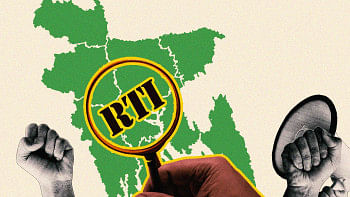NGOs can help citizens learn to use the RTI Act

Recently, there has been a perceptible increase in government advertisements promoting the Right to Information (RTI) Act, 2009, particularly on television. This is welcome news, indicating government recognition of the citizens' role in advancing good governance. The RTI Act was adopted, as enunciated in its preamble, to empower citizens to monitor the work of public offices by seeking relevant information on how they do their jobs. However, this is a complex task, as citizens must first understand the law's myriad possibilities to use it effectively.
Regrettably, there is still a significant lack of awareness about the full potential of the RTI Act. Due to its extensive nature, promoting its use through simple awareness sessions and advertisements is proving to be a challenging, if not impossible, task. The slogans used in ads, such as "Information is power," "Know your rights, ask for information," and "Access to Information is a citizen's right," may not resonate with the people. They require assistance in understanding the reasons for seeking information in the first place. Most individuals believe that information is only necessary for specific purposes and should be sought as and when required. Few realise that the law's primary objective is not to serve citizens' personal information needs, but to promote the larger public interest. They also need help in identifying specific goals for using the law.
Despite the challenges, significant progress has been made over the last 14 years. Many citizens have learnt to use the law to check, for example, if the government's social safety net programmes for those in need are reaching them properly; if school scholarships are reaching the students in full and not being truncated by school authorities; if free medicine at public clinics for people in need is not being sold to others; if contractors are not cheating on construction materials, etc. This progress, largely due to the support of many NGOs, is a testament to the potential of citizen engagement in governance. To maintain this momentum, there is a need to expand the focus and areas of interventions. Government advertisements and efforts of the Information Commission alone cannot achieve this. Citizens need practical support to identify issues and process RTI applications, a role that only NGOs can effectively fulfil.
To help citizens identify issues of common interest likely to benefit from RTI interventions, we consulted citizen groups in different parts of the country engaged in utilising the RTI law. Based on that, we devised a list relating to key public interest sectors in governance. We cite them here as an indicative list to provide a base for further additions. Experience gained in using them will likely lead to higher engagement levels in more sensitive governance areas.
RTI interventions in the education sector
• Information on resource management of schools/colleges to ensure they are properly and justly utilised.
• Information relating to fair recruitment and promotion of teachers and staff.
• Information on the functioning of management committees and the mechanism to assure their accountability, e.g., teachers' appointments, management of school funds, etc.
• Information related to admission practices, levying examination fees, etc.
RTI interventions in the health sector
• Information relating to the management system of hospitals/clinics, e.g., availability of doctors at all levels.
• Attendance of medical staff and their maintenance of time schedules.
• Procurement of medicines and medical equipment.
• Information to check if healthcare services and resource distribution are available for all, including the disadvantaged.
• Roles and duties of hospital administration and their accountability.
• Cleanliness of hospital/clinic premises and toilets, how they are managed, and checking on the roster of duties.
• Information on the list of free services and free medicines and whether their availability is prominently displayed.
RTI interventions on local government
• Information on budgeting and expenditure on local development projects, justifications for undertaking such projects, their progress, and who is responsible for monitoring and ensuring people's participation.
• Information on how effective public service deliveries are and whether access to such public service is ensured for all citizens.
• Measures to ensure fair implementation and distribution of development projects and resources.
• Measures taken to ensure regular maintenance, repair, and reconstruction of roads, bridges, culverts and other infrastructure.
• Measures to ensure transparency and accountability in the tendering process.
• Measures to reduce corruption and mismanagement in the provision of public services, e.g., appointment of rightful candidates at public services is ensured, and unlawful transfers/promotions are avoided.
RTI intervention on public procurement
• Information on the bidding or tendering process, selection of suppliers, contract awarding processes, monitoring mechanisms for progress, and quality management.
• Information on measures undertaken to reduce corruption and prevent wastage of public funds, e.g., avoidance of repeated extension of project completion period.
RTI intervention in social welfare programmes
• Measures taken to ensure just and equitable selection processes of rightful beneficiaries of specific services, e.g., pensions for old age, widow benefits, etc.
• Information on how specific programmes, e.g., social safety net programmes, are implemented and coordinated at all levels. Measures to reduce corruption in the disbursement of funds under safety net programmes.
RTI objectives for infrastructure development
• Information on measures taken for efficient project implementations related to infrastructure development and to reduce corruption and avoid project delays.
• Information on who is specifically accountable for such infrastructure's maintenance, repair, reconstruction, and operation.
Clearly, this is a preliminary and indicative list of issues related to limited sectors. However, they provide a basis to move forward. It must be noted, however, that identifying issues and transforming them into RTI requests are two different things. Experience has shown that ordinary citizens need support in both areas, more particularly in the latter regard. A few NGOs in the country have provided them so far as a part of their mission, though finding funds for them is not easy. Hopefully, they can continue to do so until the law strikes deeper roots. In a country where the more knowledgeable and educated section of society has largely remained aloof from using the RTI law, it is not difficult to understand the fate of the RTI Act in Bangladesh without NGOs' role in keeping it moving.
Dr Shamsul Bari and Ruhi Naz are chairman and assistant director (RTI), respectively, of Research Initiatives, Bangladesh (RIB). They can be reached at [email protected].
Views expressed in this article are the authors' own.
Follow The Daily Star Opinion on Facebook for the latest opinions, commentaries and analyses by experts and professionals. To contribute your article or letter to The Daily Star Opinion, see our guidelines for submission.

 For all latest news, follow The Daily Star's Google News channel.
For all latest news, follow The Daily Star's Google News channel. 











Comments